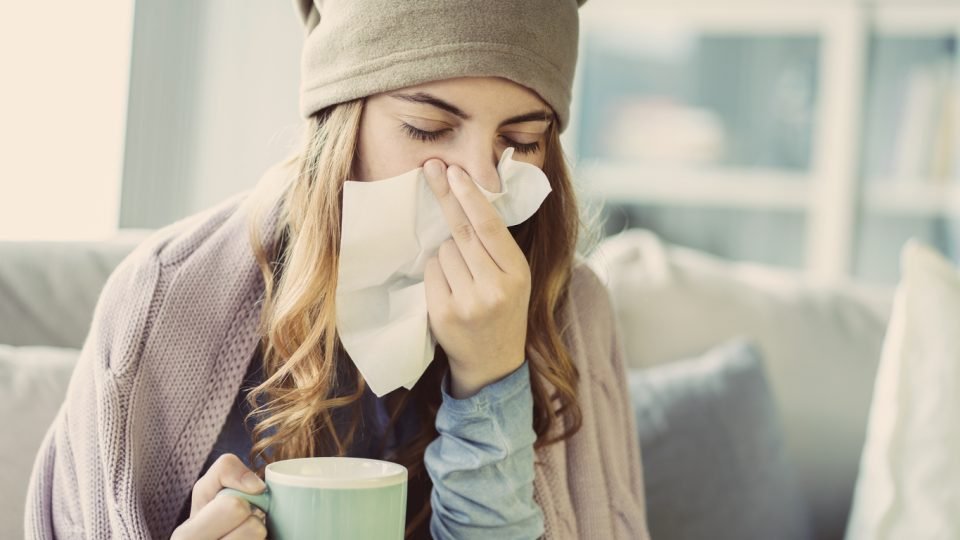
By Children’s Health
Understanding the Distinction Between Common Allergy Symptoms and COVID-19 Signs
Over 6 million children in the United States suffer from seasonal allergies or hay fever, with symptoms intensifying during high pollen seasons. During the pandemic, however, parents may wonder whether their child’s sniffles or sore throat are due to pollen or indicative of COVID-19.
“The symptoms of allergies and mild COVID-19 can often resemble each other, making it challenging to differentiate between the two without proper testing,” states Jeffrey Chambliss, M.D., a Pediatric Allergist at Children’s Health and Assistant Professor at UT Southwestern. “If you have any concerns regarding your child’s symptoms or suspect potential COVID-19 exposure, reaching out to your pediatrician is advisable.”
Discover more about the common symptoms related to seasonal allergies and COVID-19, their differences, and effective ways to manage your child’s allergies amidst the pandemic.
What Sets Apart Seasonal Allergies from COVID-19?
Even though COVID-19 and seasonal allergies can trigger similar symptoms, they arise from distinct causes. COVID-19 is a respiratory illness triggered by the SARS-CoV-2 virus. In contrast, seasonal allergies occur because of the immune system’s exaggerated response to airborne pollen from trees, grasses, and weeds.
Common Symptoms of Allergies and COVID-19
There are several symptoms which align between seasonal allergies and COVID-19. Both disorders may lead to:
- Congestion
- Runny Nose
- Coughing
- Sore Throat
- Fatigue
- Headache
COVID-19 may also result in shortness of breath or breathing difficulties, which is not typically associated with allergies but may occur in children with respiratory conditions, such as asthma, triggered by pollen.
Distinguishing COVID-19 Symptoms from Allergies
Although some symptoms are shared, there are notable differences between COVID-19 and allergies.
Seasonal allergies are frequently linked with sneezing and can cause itchy or watery eyes, symptoms that are generally not present in COVID-19. “If your child has experienced allergy symptoms during a specific season in the past and their current symptoms fall in line with previous experiences, they are likely stemming from allergies once again,” comments Dr. Chambliss. “Addressing your child’s allergy symptoms proactively can help clarify some uncertainties, but if your child has never had allergies or if their symptoms appear unusual, seeking advice from your pediatrician is prudent.”
Typically, the following symptoms are more indicative of COVID-19 rather than allergies:
- Fever
- Chills
- Muscle or body aches
- Loss of taste or smell
- Nausea or vomiting
- Diarrhea
If your child is experiencing any of these COVID-19 related symptoms, it is important to consult your pediatrician. They will evaluate the symptoms and guide whether a COVID-19 test is necessary.
Add Quote Co“If your child hasn’t had allergies before or if their symptoms seem different, it’s best to get your pediatrician’s advice.
How Can Seasonal Allergy Symptoms Be Prevented?
To reduce your child’s seasonal allergy symptoms, it is essential to limit their exposure to pollen. Here are some effective steps:
- Staying indoors and keeping windows and doors closed during peak pollen periods
- Utilizing a HEPA filter
- Vacuuming regularly
- Washing clothes and bathing after outdoor activities
- Using an over-the-counter saline nasal rinse or spray to flush out pollen
Implementing these measures may be especially beneficial during the pandemic, as any indication of a cough or congestion can raise concern.
How to Protect Against COVID-19?
The most effective way to avoid COVID-19 is to get a COVID-19 vaccine if eligible. Families should also take proactive steps to minimize virus transmission, such as wearing masks and practicing good hand hygiene.
Wearing masks consistently can help lower your child’s exposure to airborne pollen as well. Regular washing of face masks is advised to ensure they remain free of pollen particles.
COVID-19 Testing
If your child exhibits symptoms akin to COVID-19 or if exposure is suspected, it is wise to take precautionary measures to prevent the virus’s spread. Testing will clarify if your child has COVID-19 or if the symptoms result from allergies. Review tips to help prepare a child for a COVID-19 test.
If symptoms are ruled out as COVID-19 and are allergy-related, your pediatrician can offer additional management strategies. There are also treatment options that your pediatrician or a specialist may suggest.
If your child suffers from seasonal allergies, distinguishing between allergy symptoms and potential COVID-19 signs can be challenging. Discover how to differentiate with insights from @Childrens.
Find Out More
Children’s Health is dedicated to being a reliable source of health information and support for families during this time. Explore more resources available on the Children’s Health COVID-19 hub to keep your family healthy.
Stay Informed
Keep up with health insights that can significantly benefit your children. Subscribe to the Children’s Health newsletter to receive tips delivered directly to your inbox.






